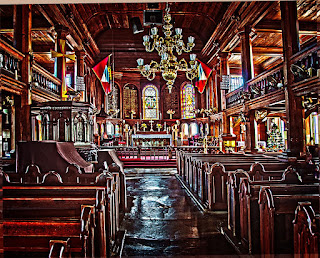Fascinating time capsule that transports the listener straight into 1910s New York, time of Enrico Caruso, "Titanic" and first celebrated superstars of Metropolitan Opera, the era of corseted ladies like Edith Wharton in huge, embellished hats, "The House of Mirth" and "The Age of Innocence", the formal times that actually preceded (and provoked) later abandon of 1920s. Czech prima donna Ema Destinnová is now perceived as one of the legendary and revered ancestors of future operatic artists, kind of beginning of a family tree that will continue to grow to present days but in fact, Destinn and her contemporaries were just continuing already centuries strong operatic tradition that found very strong response in newly built opera houses of new world. Just like Caruso, Nellie Melba, Pol Plançon or Irish tenor John McCormack, Destinn was imported from respected opera houses around Europe (in modern world, we would call these people immigrants) and you can bet that Metropolitan managers would hand pick only the most respected artists who had already left a mark in places like Bayreuth, Berlin Court Opera and Covent Garden's Royal Opera House.
Lovingly restored and presented here by Nimbus Prima Voce company, we have chance to hear art of Emmy Destinn as preserved on records made during some fourteen years that roughly match her rise on the top of international fame. It is a huge, powerful voice, heroic instrument that needs (or probably knows) no artificial electronic gadgetry as microphones in order to blow the audiences away, even in far away theatre balconies. Not much of subtlety or pianissimo, as people crowded to hear Destinn ramming her way trough mammoth orchestrations of operas by Richard Wagner and Richard Strauss with full blast - and she apparently gave them what they came for, that massive voice effortlessly soaring trough "Samson Et Dalila", "Tosca" and most memorably "La Gioconda" where her 1914. recording of "Suicidio" finds her at absolute peak of vocal powers and its truly a version to remember, cherish and idolise forever. Strangely enough, this is also a time of great political turbulence's in the world, when Destinn herself got imprisoned during WW1 in her homeland for connections with underground resistance groups and current accepted opinion has it that after the war Destinn was never the same - if you hear her gentle take of "Moon Song" from "Russalka" by Antonin Dvořák or "Cradle Song" by Bedrich Smetana that come towards the end of this compilation and were recorded when Destinn supposedly already lost it, it is clear that in her forties singer actually finally achieved tenderness that replaced steely power of earlier recordings. These later recordings are by far more lovable and affectionate, in fact towards the final note of "Cradle Song" here it is, we can actually hear lovely, soft and heartfelt pianissimo.














































